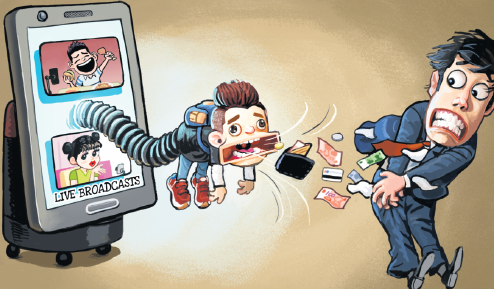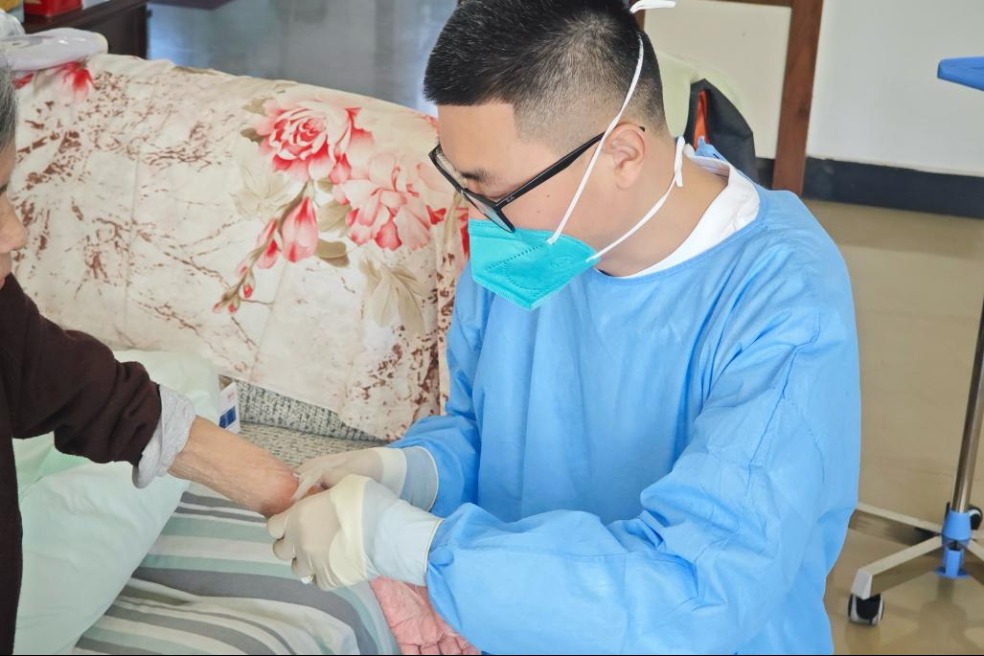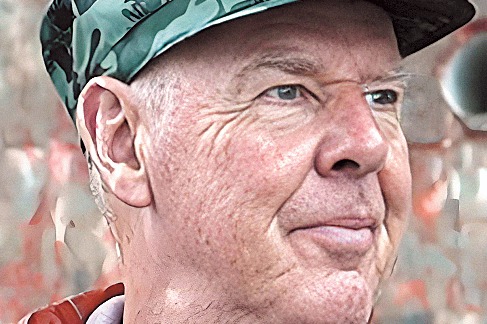Rise of online 'kidfluencers' sparks nationwide debate
Popular videos raise concerns about exploitation, need for improved regulation


As videos of children playing, dancing, crying or being funny go viral online, the surge in the use of child content to attract more views has also sparked controversy nationwide.
A prime example is "Yaoyiyao Xiaoroubao", an account on the short-video sharing platform Douyin that showcases the daily life of a 4-year-old girl from Guizhou province. As one of the most popular child internet celebrities, or "kidfluencers", the account, managed by her parents, has captivated over 20 million followers and garnered more than 600 million likes since its debut in March 2021.
While many people adore the toddler's chubby cheeks and the playful content, a video posted in February, where the girl fell and her mother kept filming and laughing instead of helping her, sparked debate over the child's well-being.
Some netizens speculated that the fall was staged for more online views, while others questioned whether the family profited from advertisements related to the child's popularity.
According to Chinese media reports, nearly 30 ads have been placed in videos featuring the child over the past year, potentially earning her family about 16.5 million yuan ($2.27 million).
Following the debate, her parents stopped posting videos for over a month and pledged to prioritize the girl's healthy development in future content. They have also removed all product-related listings from the Douyin account.
However, this is far from an isolated case. Videos in which children have makeup on, are encouraged to overeat or engage in smoking and bullying under the guise of correcting bad behavior, are proliferating on the internet.
"I feel uncomfortable watching that kind of content. Whenever I come across these videos, I report them to the platform operators to urge stronger content moderation," said Zheng Ning, head of the Law Department at the Communication University of China's Cultural Industries Management School.
She welcomed action taken recently by internet regulators and online platforms, including the removal of harmful information involving kids, and the establishment of child-friendly operation modes. However, she called on the wider community to join efforts to protect minors in cyberspace.
"It's acceptable to document a child's growth through videos," Zheng said. "However, deliberately making children perform to attract more viewers and profit from it is not only detrimental to the health of minors but also poses potential legal risks."
'Internet daughter'
On Jan 20, 2024, "Yaoyiyao Xiaoroubao" posted a video of the toddler in a purple coat playing in the snow, which received 14.93 million likes, making it the most-liked content on the account to date.
Among the numerous comments were some expressing admiration for the child's innocence, while others said the video had cheered them up.
"The girl is so cute, reminding me of what my own daughter looked like when she was little," said a follower named Siyu. Another follower, Wanyi Xiangzhi, wrote that she was down that day, but felt much better after watching the video.
A netizen with the nickname "Miniboss" described the toddler as her "internet daughter". "I cannot go a day without watching the kid's videos; I look forward to the account's updates every day," wrote Miniboss.
Data released by the China Internet Network Information Center in January, showed the number of the country's netizens had increased to over 1.1 billion by the end of 2024, up from 620,000 in 1997. Among those, internet users aged 6 to 19 made up 16.7 percent of the total.
In recent years, kidfluencers have been popping up all over the internet. Usually, it is the children's parents who run the accounts, posting about everyday events like meals, school, and playtime, according to Zheng.
"These children are just so cute and funny, and their reactions are totally different from adults. Many netizens like following the content because it's like a little break for them when life gets hectic," she said.
Zhu Wei, deputy head of the Communication Law Research Center at the China University of Political Science and Law, supports online content featuring children, as documenting the growth of youngsters can be a delightful experience for both content creators and viewers.
Growing concern
However, Zhu expressed concerns about online content that uses children to attract attention and commercialize them for profit. "I'm strongly opposed to actions that go against minors' will, or involve violence or abuse to force them to perform," he said.
"For example, some videos show children crying and shouting for much-loved pets that are taken away in order to exploit viewers' sympathy, attract views, and even make money. This kind of content is absolutely unacceptable.
"In short, children should not be treated as consumer objects, and never be used as a means for commercial gain."
Zhao Zhanling, a lawyer from Beijing JAVY Law Firm, said greater attention needs to be paid to videos showing children performing dangerous acts or using vulgar language, as such content can harm minors and potentially infringe upon their rights to privacy. It may even pose a criminal risk of child abuse, Zhao said.
Zheng was critical of videos where children are seen dancing and dressed in provocative clothing, or others showing them taking a bath. The filming of such scenes can be detrimental to the physical and mental health of minors, she said.
"When adults post content featuring minors, they must respect the children's wishes and handle their personal information with special care. Otherwise, it will violate the Minor Protection Law," she said.
China's Advertising Law stipulates that children under the age of 10 are not allowed to endorse products. However, some kidfluencers' accounts clearly incorporate ads and are linked to commercial activities, which highlights the urgent need for supervision and regulation, Zheng added.
Taking action
The Cyberspace Administration of China, the country's top internet regulator, announced in April that since the beginning of this year it had intensified a crackdown on those exploiting child content for profit. More than 11,000 accounts had been suspended or permanently shutdown, according to the regulator.
The exploitative videos showed adults throwing food at children or scribbling on their backs as "punishment", while others featured fake parent-child conflicts in which minors act out the breakups or play the role of peacemakers, according to the administration.
In other offending videos, children were encouraged to unbox luxury goods and flaunt wealth. In other instances they imitate smoking, perform dangerous acts or spread pornographic content.
The regulator urged online platforms to more strictly review content involving minors and step up investigations of harmful material.
At the end of last year, the administration exposed several cases of profiting from kidfluencers, including having minors act out school bullying or using a fake marriage or pregnancy as a gimmick to attract more viewers and sell products.
Last month, multiple phone brands, including Huawei and Oppo, apps, and mobile programs joined efforts to step up protection of minors. All of them have integrated a "child-friendly" mode into their software and hardware, in an effort to provide a safer online environment.
While the mode is in use, the range of high-quality content for those under the age of 18 will expand significantly, tailoring and recommending content based on the minor's age.
Meanwhile, it also offers control of daily total internet usage, usage-period settings, rest reminders, as well as app management and usage statistics. The measures aim to help parents provide reasonable guidance of their children's online behavior.
Douyin has implemented the child mode, and pledged to continue its crackdown on content that endangers minors, especially those that induce children to perform acts of bullying, or exploit children to evoke sympathy.
Zheng suggested internet service providers apply artificial intelligence and big data when reviewing content to improve identification and filtering of harmful information. She also encouraged social organizations and the public to play a supervisory role by reporting improper and illegal content to the platforms and regulatory departments.
"Online platforms can set up a one-click or quick reporting channel to prioritize complaints involving minors," Zhao, the lawyer, said, while calling on parents to be more cautious while creating and sharing videos related to their children in cyberspace.
"Minors' information, especially their home addresses and schools, shouldn't be exposed on the internet. As children grow older, parents also need to seek their consent before filming and posting videos online," he added.





































